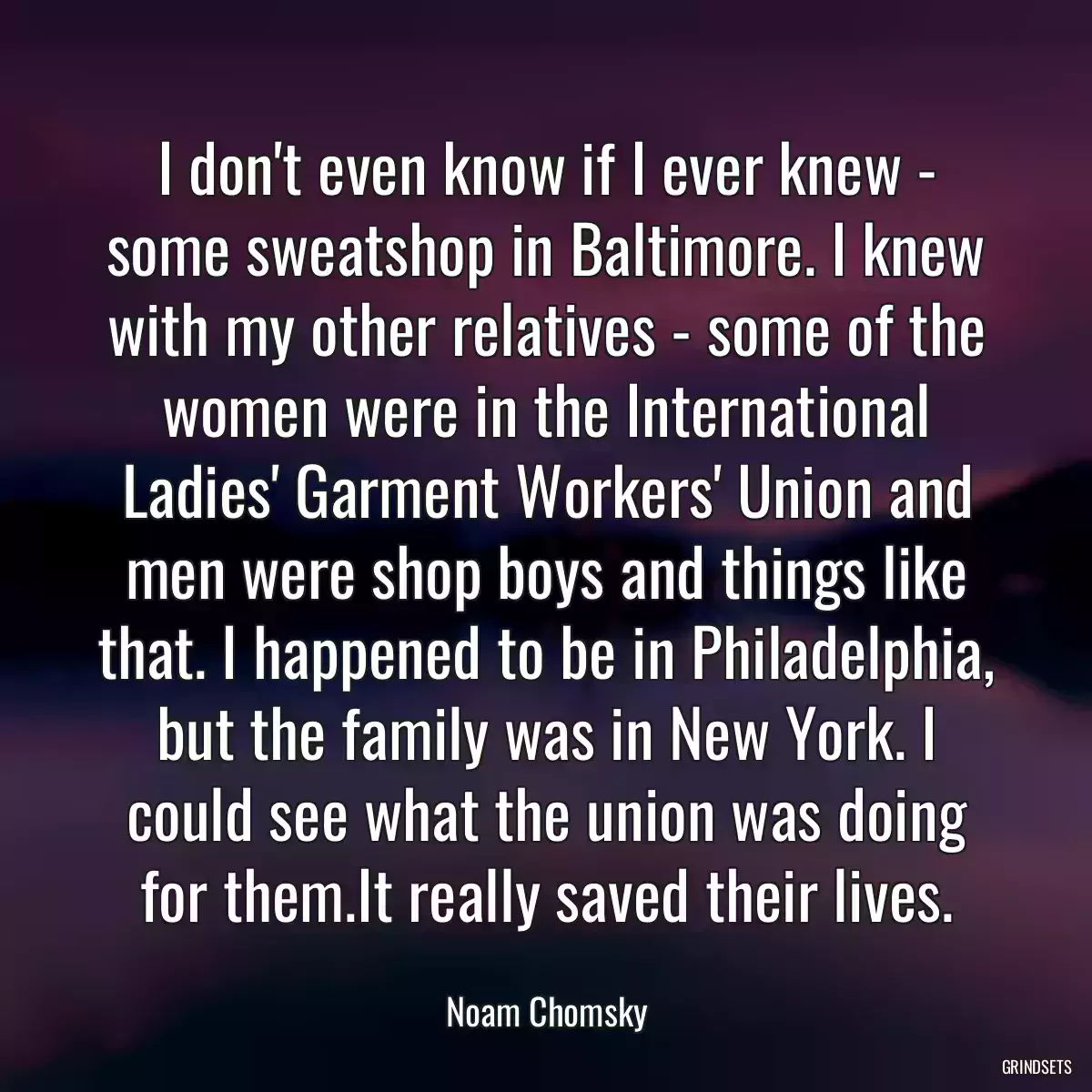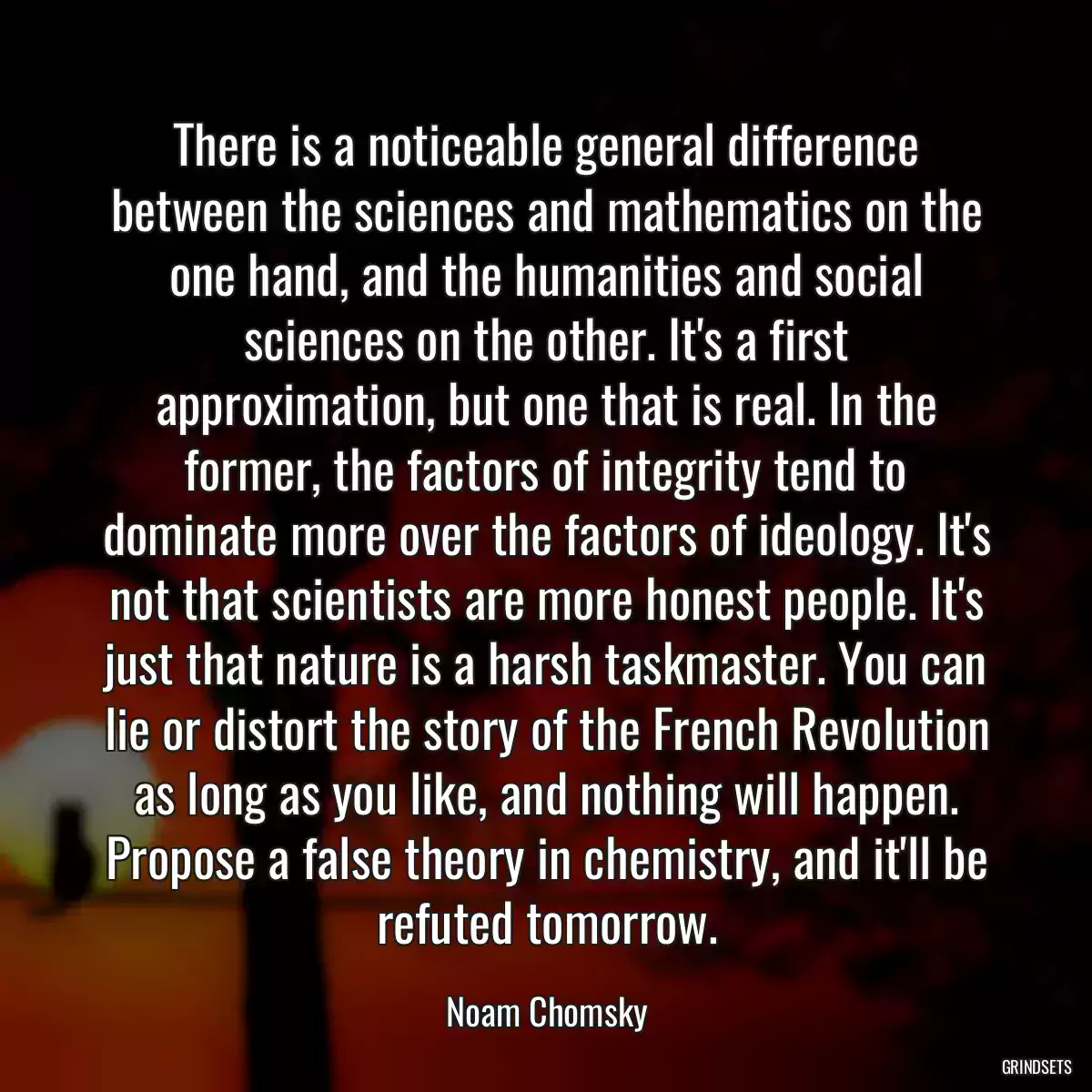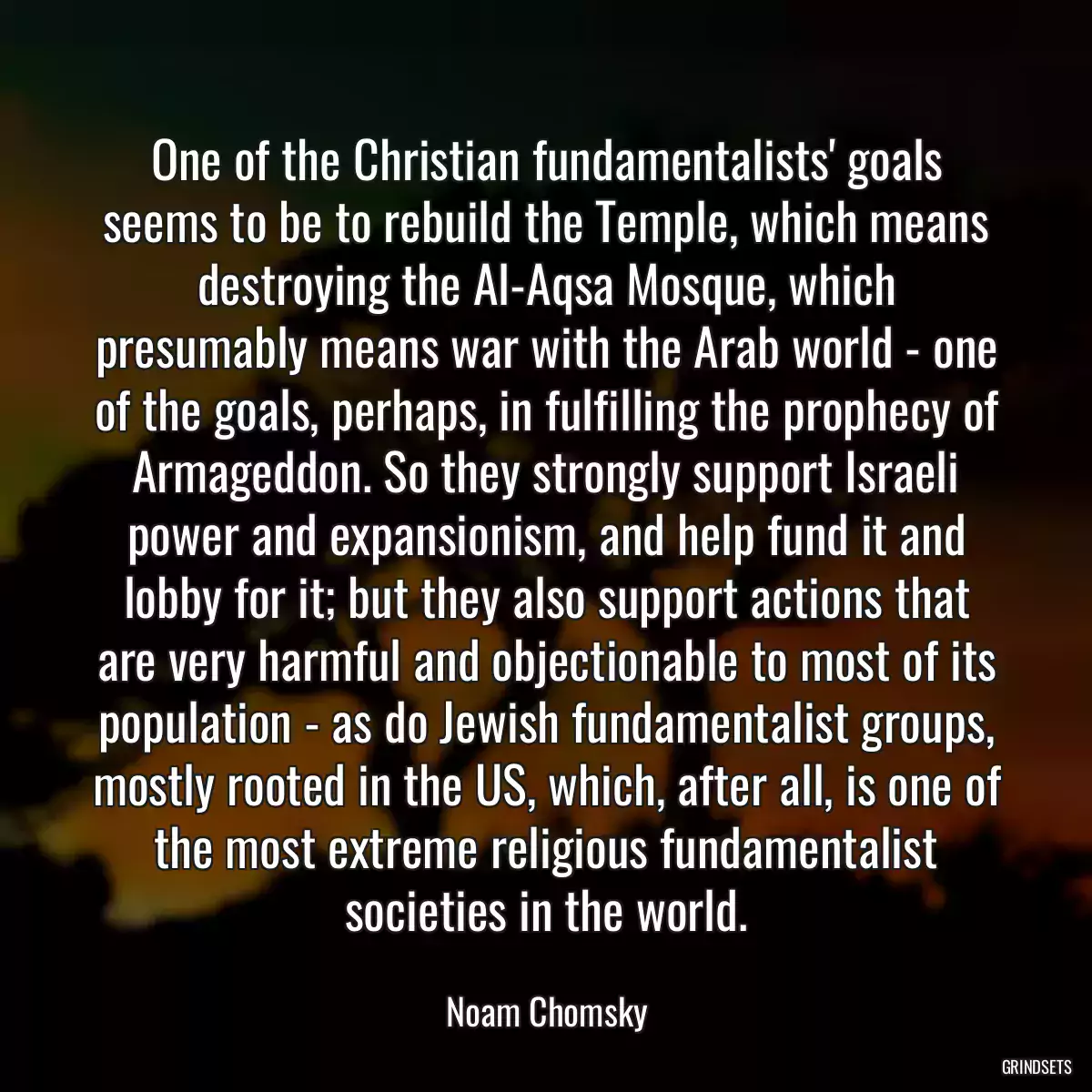
I don't even know if I ever knew - some sweatshop in Baltimore. I knew with my other relatives - some of the women were in the International Ladies' Garment Workers' Union and men were shop boys and things like that. I happened to be in Philadelphia, but the family was in New York. I could see what the union was doing for them.It really saved their lives.

